The 50 Best Football Books Ever: 40-31
More essential reading from the FourFourTwo library
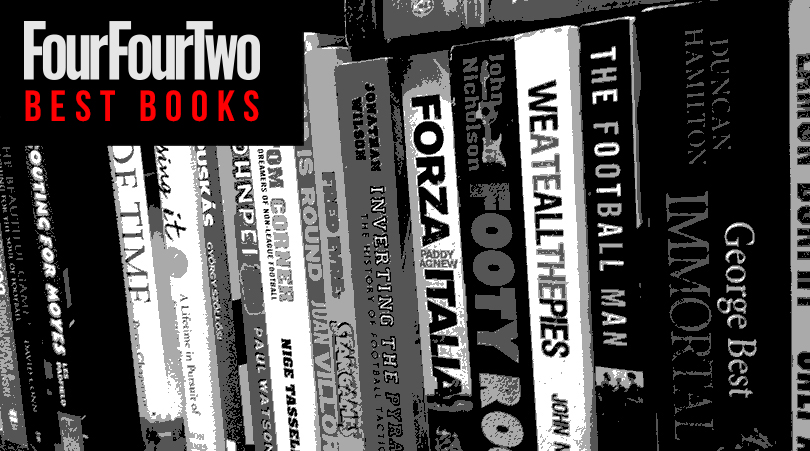
The first section of this list took you from jumpers-for-goalposts to death by Nazis. This one will transport you around the world, but it starts in the North-East...
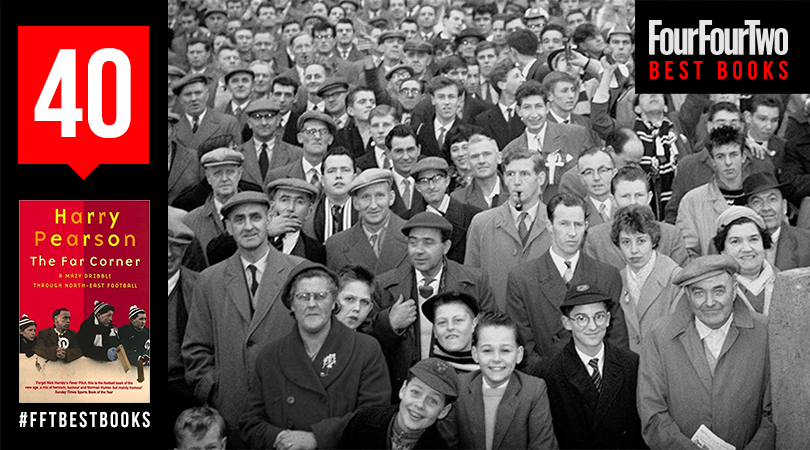
40. The Far Corner
A Mazy Dribble Through North-East Football – Harry Pearson, 1994
For exiles from that 50-mile strip from Ashington in the north to Teesside in the south, The Far Corner cannot be read without a lump in the throat. It’s hard to imagine anything else could be so evocative of the North-East. Football, of course, is the perfect medium for exploring the spirit of the region, that “far-off mythical place where the people were called ‘folk’, the beer was called ‘ale’, the men were called ‘lads’ and the lads were called ‘Jackie’.”
Harry Pearson, himself a returned exile, manipulates the whiff of batter, leek-growing contests and the shopkeeper with the Shackleton obsession to produce a work that is moving, cynical, romantic, tragic and sentimental. Most of all, though, it is hilarious – in that peculiarly North-Eastern mode that is both abrasive and affectionate. Jonathan Wilson
–––––––––––––––––––
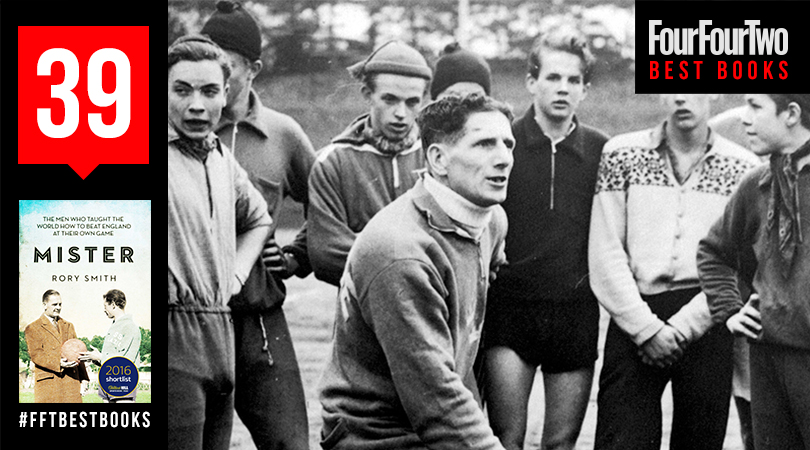
39. Mister
Get FourFourTwo Newsletter
The best features, fun and footballing quizzes, straight to your inbox every week.
The Men Who Gave The World The Game – Rory Smith, 2016
England casts a long shadow. Across much of Europe and Latin America, the colloquialism for a coach is Mister: a lingering linguistic bootprint from the pioneering English managerial diaspora who spread their footballing ideas across the globe but remained little-known at home.
FFT columnist Smith commemorates a series of these Johnny Appleseeds in Mister, shortlisted for the William Hill Sports Book of the Year (despite some improvable editing: we’re told twice in two pages that the Copa del Rey was the de facto Spanish national championship in the 1920s, and the same assertion crops up again later in the chapter).
Understandably, some of the chapters tend to follow the same narrative arc: minor Football League player is forced to seek work abroad, finds success and acclaim, eventually returns due to homesickness or war but still can’t find a job in an England doggedly obsessed with muscular athleticism rather than clever coaching. But Smith teases out the personal, sometimes heartbreaking stories behind the Misters’ matches and medals.
And although celebrating the coaches in question, the book’s recurring theme is a melancholic reflection on missed opportunities as Anglocentric arrogance assumed there was nothing to learn from these innovative individuals and their foreign charges. After all, what could they possibly teach the cradle of the game? Gary Parkinson
–––––––––––––––––––
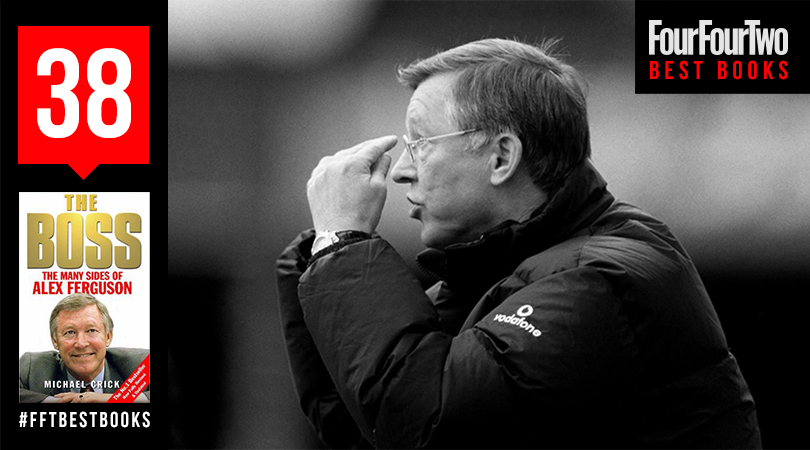
38. The Boss
The Many Sides Of Alex Ferguson – Michael Crick, 2002
Having debunked the myths surrounding leading Tories Jeffrey Archer and Michael Heseltine, Newsnight reporter Michael Crick wrote an instant best-seller on the United boss. The “hairdryer” treatment, his dealings with agents, Fergie’s often fractious relationship with journalists – Crick proved that the Scot is a man of many contradictions.
The fear Fergie invokes in others was never better illustrated than when the Manchester Evening News refused to grant Crick access to its United clippings files on the grounds that it might incur the boss’s wrath. The entire episode led the author to question whether he’d been transported to Mugabe’s Zimbabwe. One of Crick’s other revelations is that Fergie enjoys singing along in the car to Sinatra songs, including My Way. Fitting indeed. Jon Spurling
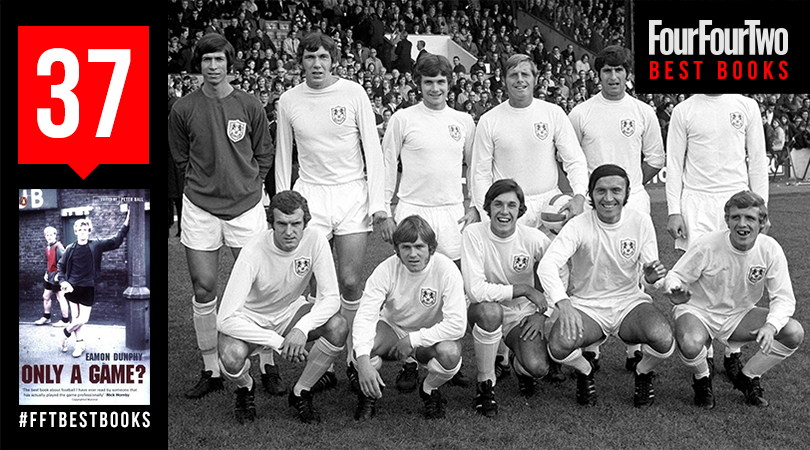
37. Only a Game?
The Diary Of A Professional Footballer – Eamon Dunphy, 1976
A book that answers the greatest question: what’s it really like to be a professional footballer? Nobody had done it before.
Only a Game? has the perfect narrative structure: Dunphy takes us from absurd pre-season hopes, through quarrels in the team, to being dropped and finally leaving Millwall after eight years. His diary for November 10 1973, a 2-0 victory over Cardiff City for which he was not picked: “I couldn’t go and sit in the stand hoping for them to get beaten. It is too small-minded for words. So I watched the racing on telly instead. What is terrible is that it is only November.”
Dunphy is honest about himself, emotionally literate in describing his team-mates (who come to life like characters in a good novel), and revealing of the insecurity with which footballers live. You get the sense that the life is not only unglamorous, but not much fun. Simon Kuper
–––––––––––––––––––
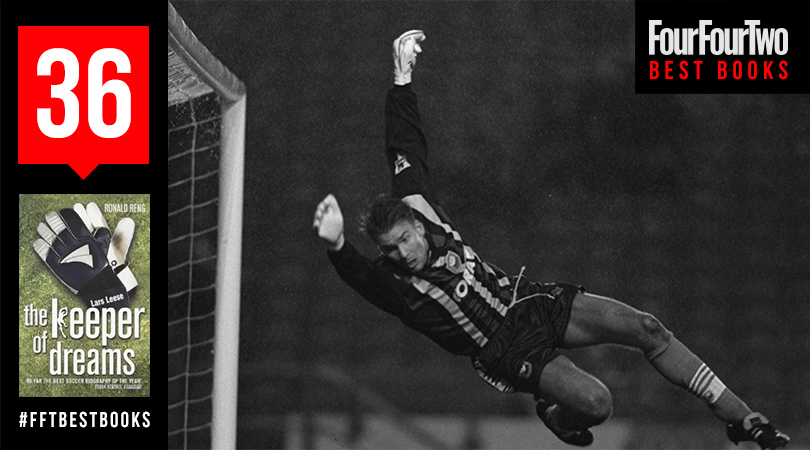
36. The Keeper Of Dreams
One Man’s Controversial Story Of Life In The English Premiership – Ronald Reng, 2003
A riveting memoir, Reng’s book tells the strange and fascinating tale of Lars Leese, a goalkeeper plucked from the German minor leagues (and computer software industry) to play for Barnsley in the Premier League but soon returns to obscurity in Germany. The culture shock is immense: Leese puzzles over tactics, watches his team-mates rogering strippers on stage at the Christmas party and tries to handle the claustrophobic hysteria of a small Yorkshire town desperate to bask in football glory.
He commits one early, unforgivable sin on the pitch: throwing the ball to a team-mate. To correct this ‘mistake’, the coach stands on the flank near the halfway line to show Leese where he must always kick the ball to. Among the many delights is the revelation that German keepers shout “Leo!” if they’re going to kick the ball in the air so defenders know to duck. Paul Simpson
–––––––––––––––––––
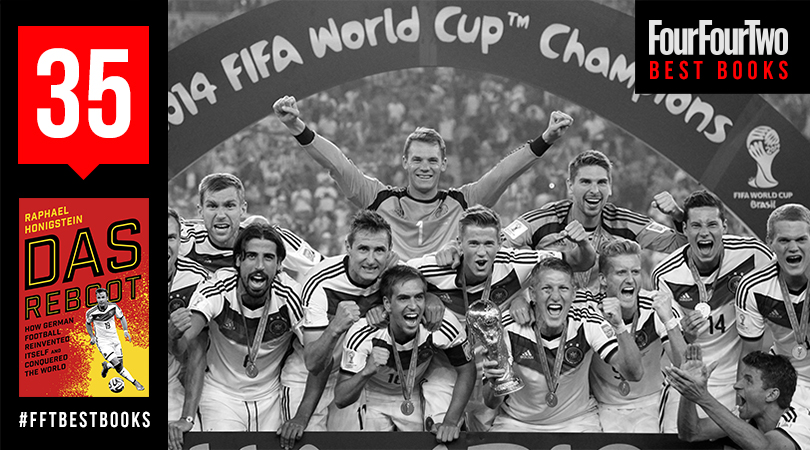
35. Das Reboot
How German Soccer Reinvented Itself And Changed The World – Raphael Honigstein, 2015
It helps a book to have a narrative, and here Honigstein tells the story of how the German national team made the journey from the despair of crashing out in the Euro 2004 groups stage to winning the World Cup 10 years later.
The author interviews several key figures – including Jurgen Klinsmann, the man who took charge for the 2006 World Cup on home soil and revitalised a flagging team. Philipp Lahm and Thomas Muller, two of the most important players in Die Mannschaft’s recovery, also speak to Honigstein to provide the inside track on how the World Cup was won.
It’s a fascinating read and a reminder that a national team’s fortunes can be turned around, given the right strategy and a real willingness to change. The FA should take note – the 2026 World Cup could be England’s. Chris Flanagan
–––––––––––––––––––
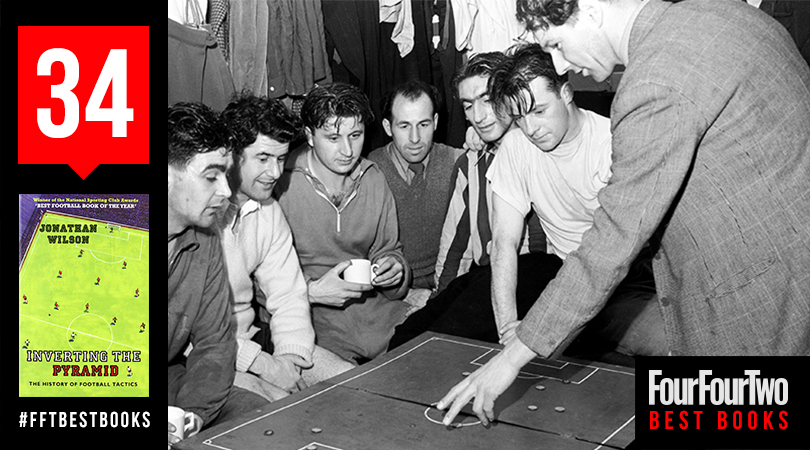
34. Inverting the Pyramid
The History Of Football Tactics – Jonathan Wilson, 2008
Many of those “football Einsteins” who so irritate Jose Mourinho learnt their first theoretical lessons at Jonathan Wilson’s blackboard. Tracing the development of various tactical formations over the last century and a half, Wilson spins a consistently interesting tale spanning various continents and fascinating characters who have helped football gradually invert the pyramid – from the attack-minded 2-3-5 to the sole strikers and packed back halves of today.
It’s to Wilson’s credit that although long, it’s far from dry. He rails against the British game’s entrenched anti-intellectualism and stages a passionate takedown of the statistical misreadings upon which Charles Reep and Charles Hughes did so much damage. And although it may not be entirely new (unless you’re a complete naif), unarguable (can we really be sure England played 1-2-7 in 1872?) or all-encompassing (there’s not much showing from Helmut Schoen or Sepp Herberger), it’s a thoroughly entertaining education for anyone wishing to be an internet quarterback. Yeah, you, Einstein. Gary Parkinson
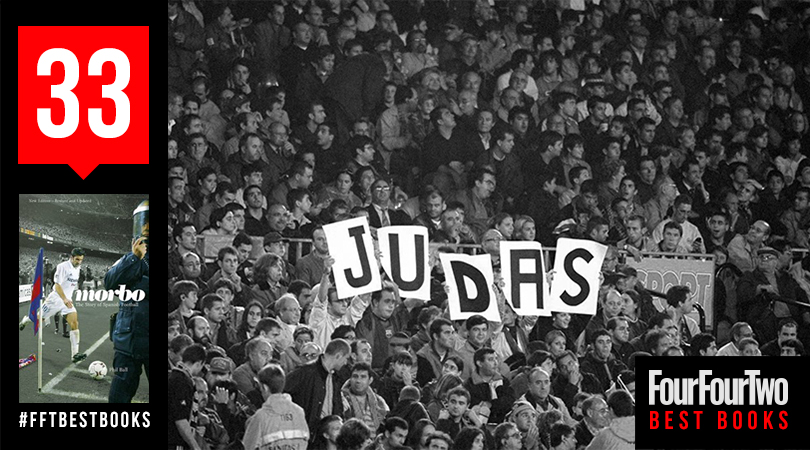
33. Morbo
The Story Of Spanish Football – Phil Ball, 2001
Ball is lucky to have published Morbo before the Galactic flood of books on Real Madrid – including two of his own – began, when there was very little in English on football in Spain. But this book’s appeal lasts because like Alex Bellos and David Winner, Ball wrote well, was funny, and knew more about his chosen country than just its football.
The bulk of his book is stories of morbo, a Spanish word that means something like needle or rivalry. It is, in effect, a guide to Spanish life. Ball lived in San Sebastian, played beach football with legendary winger Lopez Ufarte, and knew someone who taught Luis Arconada English. It’s the perfect mix of the personal and the national, Ball’s own life illuminating the book. That’s why it has survived long after most of the Madrid books have turned out to be ephemeral. Simon Kuper
–––––––––––––––––––
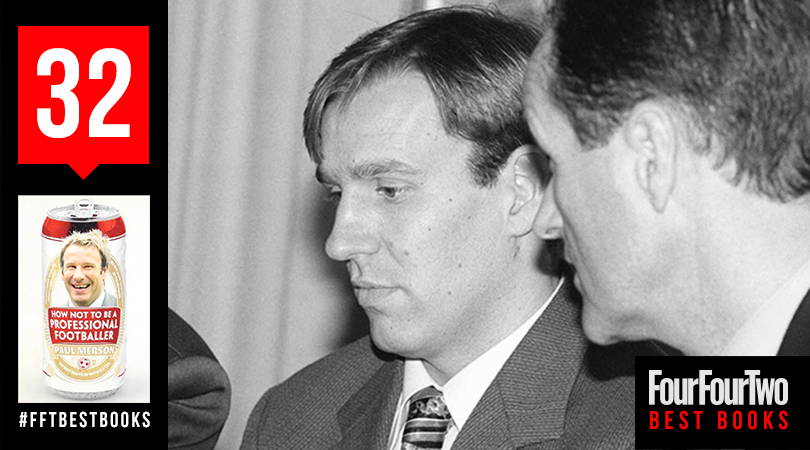
32. How Not To Be A Professional Footballer
Paul Merson, 2011
Forget about literary grandeur: Merse’s painfully honest rollercoaster ride through almost every level of English football won’t change the way you feel about the game. But it will take you on a mesmerising jaunt from the highs – of all kinds – at trophy-winning Arsenal, to the lows of dealing with the intense pressures at the pinnacle of our national obsession.
From gambling away his wages to going straight at Villa and Pompey, Merson’s ‘lad banter’ balances out the sad self-destruction of the Soccer Saturday heavyweight as he recalls playing drinking games in the afternoon with the likes of Gazza and others, providing the inside line on that ruinous drinking culture inherent to the late ‘80s and early ‘90s. Gregor MacGregor
–––––––––––––––––––
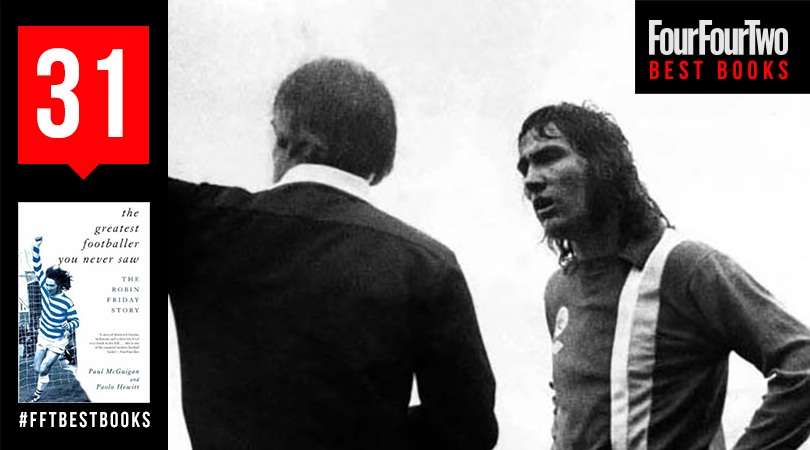
31. The Greatest Footballer You Never Saw
The Robin Friday Story – Paolo Hewitt & Paul McGuigan, 1998
Drinking binges, drug-fuelled rages, disappearing acts, jail sentences, an outrageous talent squandered, and a shockingly early death amid suspicious circumstances: meet Reading and Cardiff ’70s cult hero Robin Friday – football’s Keith Moon.
The idea for the book came during Oasis’s 1996 US tour. The then Oasis bassist Paul ‘Guigsy’ McGuigan and music journalist Paolo Hewitt stumbled upon a Goal article printed in memory of Friday, who’d recently died at the age of 38. Inspired to unearth more about him, they headed for Berkshire when the tour ended. “Guys on the Reading Evening Post put us in touch with his family and team-mates, and the stories just started flooding in,” recalls Hewitt.
The Friday legend is perpetuated by the fact that so little footage of him remains. He spent his entire career in the lower leagues, and despite extensive research, Hewitt unearthed only a few grainy images of him in action. But team-mates vouch for Friday’s unorthodox brand of genius. He set the tone after his Reading debut in 1973. When asked if he was satisfied with his debut goal, he replied: “Yeah, I could have back-heeled it in actually, but I thought that might be taking the piss a bit.”
“Guigsy always said that George Best was football’s first pop star, and that Robin Friday was its first rock star,” Hewitt comments. In true rock ‘n’ roll fashion, Friday turned up to away games armed only with his boots, and would go AWOL until the following weekend’s ‘gig’. And speaking of rock ‘n’ roll, there was no more suitable cover star for Super Furry Animals’ 1996 agitprop single The Man Don’t Give A F***, adorned with an image of Friday flicking the Vs at Luton goalkeeper Milija Aleksic.
Off the field, Friday emerges as a rebel in other ways. Hailing from a white working-class estate, he grew his hair long, married a black girl at 16 and fought running battles with National Front activists. Controversial referee Clive Thomas reckoned Friday’s outrageous 35-yard scissors-kick against Tranmere was “the most amazing goal ever.” It’s certainly the greatest goal you never saw. Jon Spurling
In the next section: Addiction, beauty, glory and a miracle
Gary Parkinson is a freelance writer, editor, trainer, muso, singer, actor and coach. He spent 14 years at FourFourTwo as the Global Digital Editor and continues to regularly contribute to the magazine and website, including major features on Euro 96, Subbuteo, Robert Maxwell and the inside story of Liverpool's 1990 title win. He is also a Bolton Wanderers fan.
